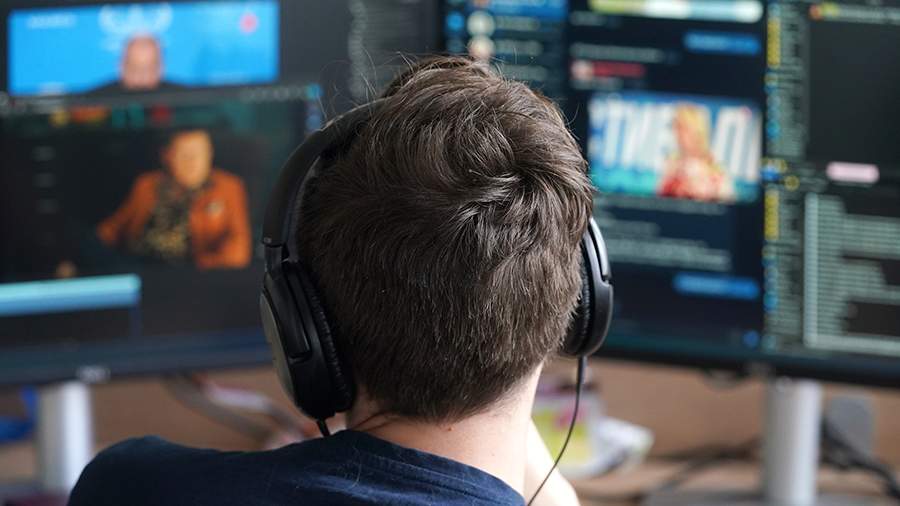December 4 - Computer Science Day in Russia: history and traditions of the holiday
- Новости
- Local news
- December 4 - Computer Science Day in Russia: history and traditions of the holiday

Every year on December 4, Russia celebrates a holiday dedicated to the development of information technologies - Informatics Day. In 2024, it falls on Wednesday. About the history of the celebration and its traditions read in the material "Izvestia".
Informatics Day - the history of the holiday on December 4
Information technology has long penetrated into all areas of life in human society. Nevertheless, Russia began to celebrate Computer Science Day only in the XXI century. In 2005, an initiative group of employees of the Moscow Institute of Electronic Technology came up with the corresponding proposal. And from the next year, 2006, the date was included in the holiday calendar of our country.
The celebration is timed to an important event that took place on December 4, 1948 - the registration of a patent for the first domestic computer "MESM" (small electronic counting machine), the brainchild of outstanding Soviet scientists Isaac Brook and Bashir Rameyev. From that moment, the USSR began to actively develop computer technology.
The need for information processing dates back to ancient society with the development of trade and economy. The first forms of calculations are associated with the use of sticks for counting, knot writing in ancient Greece and China. The development of writing in Ancient Egypt, Sumer and other cultures made it possible to preserve and transmit knowledge, which became the basis for systematization of data.
In the Middle Ages, mathematicians Al-Khwarizmi (his works gave rise to the term "algorithm") and Leonardo Fibonacci, who spread the Arabic number system to Europe, contributed to informatics.
In the 17th century, Blaise Pascal created the Pascaline, a device for addition and subtraction. In the 18th century, Gottfried Leibniz improved on these ideas by proposing a device for performing multiplication.
In XIX century English mathematician Charles Babbage developed the concept of "Analytical machine", a prototype of modern computer, which could perform complex calculations according to a predetermined program. The algorithm for this machine was written by Ada Lovelace, who is considered to be the first programmer in history.
The 20th century marked the beginning of the era of electronic computing. And the term "informatics" in the middle of the last century was proposed by German Karl Steinbuch, combining the words "information" and "automation".
In the 1930s, the first computing machines appeared, such as Konrad Zuse's Z3, which was based on relays. The first fully electronic computer capable of performing thousands of operations per second was ENIAC, commissioned by the U.S. Army at the Ballistics Research Laboratory to calculate firing tables in 1946.
In 1948, Claude Shannon proposed a mathematical model for data transmission, laying the foundation for digital communication. And in the USSR in the same year, under the leadership of Sergei Lebedev, the first Soviet electronic computer was patented and created.
The late 20th was the time of the digital revolution. In the 1970s and 1980s, computers became compact and available for mass use. The advent of the IBM PC and Apple Macintosh marked the beginning of the PC era. In 1969, ARPANET, the precursor to the Internet, connected the first computers. In the 1990s, the Internet became available to the general public, revolutionizing the transmission and storage of data.
The 21st century was marked by the development of artificial intelligence, cloud computing, quantum computers and big data.
Traditions of celebrating Informatics Day in Russia
On Informatics Day, congratulations are accepted by specialists in programming and system administration, developers, data analysts, cybersecurity specialists, as well as students and teachers of specialized disciplines.
Together they create and improve programs and applications, ensure the smooth operation of computer systems, ensure the safety and security of data, and help make decisions based on their analysis. The date is also loved by users of digital technologies.
On this day, various conferences and forums aimed at popularizing and supporting IT sciences are traditionally held in different Russian cities. IT industry specialists participate in round tables, discuss current trends, development experience and achievements.
Many universities and specialized institutions hold open classes and seminars for students and schoolchildren, during which they introduce them to professions in the field of high technologies.
Also on this day, educational institutions organize competitions in programming, cyber sports and project development for students and schoolchildren. IT related companies organize informal meetings, employee awards, quests and contests.
Interesting facts about information technology
In modern society, informatics continues to develop actively, opening new horizons for science and technology. "Izvestia" collected several interesting and unusual facts related to IT technologies.
The first Soviet computer, created in 1948, occupied an area of about 60 square meters. meters. It used lamps for its operation, and its computing power was much slower than today's smartphones.
The first webcam was invented in 1991 by Cambridge University students to monitor a coffee machine. They built it so they could get an image of the machine while working at other ends of the building and know exactly when the invigorating drink would be ready, without wasting time waiting.
The first computer virus was created in 1983 by a 15-year-old teenager named Richard Skrenta. The kid was in 9th grade at a school in Pennsylvania and liked to prank his peers by breaking their computer games through code rewriting. As a result, gamers saw a "funny" picture instead of the continuation. The malicious program was named after its creator - Elk Cloner. This "worm," which is considered the first "real" computer virus, infiltrated computers via floppy disks.
The word Google is a typo. Initially, the search engine was planned to be called Googol, which means a number with 100 zeros, but during the registration of the patent in the name was made a mistake, which eventually took root.
Earlier Izvestia told about the history and traditions of Programmer's Day in Russia.
Переведено сервисом «Яндекс Переводчик»

